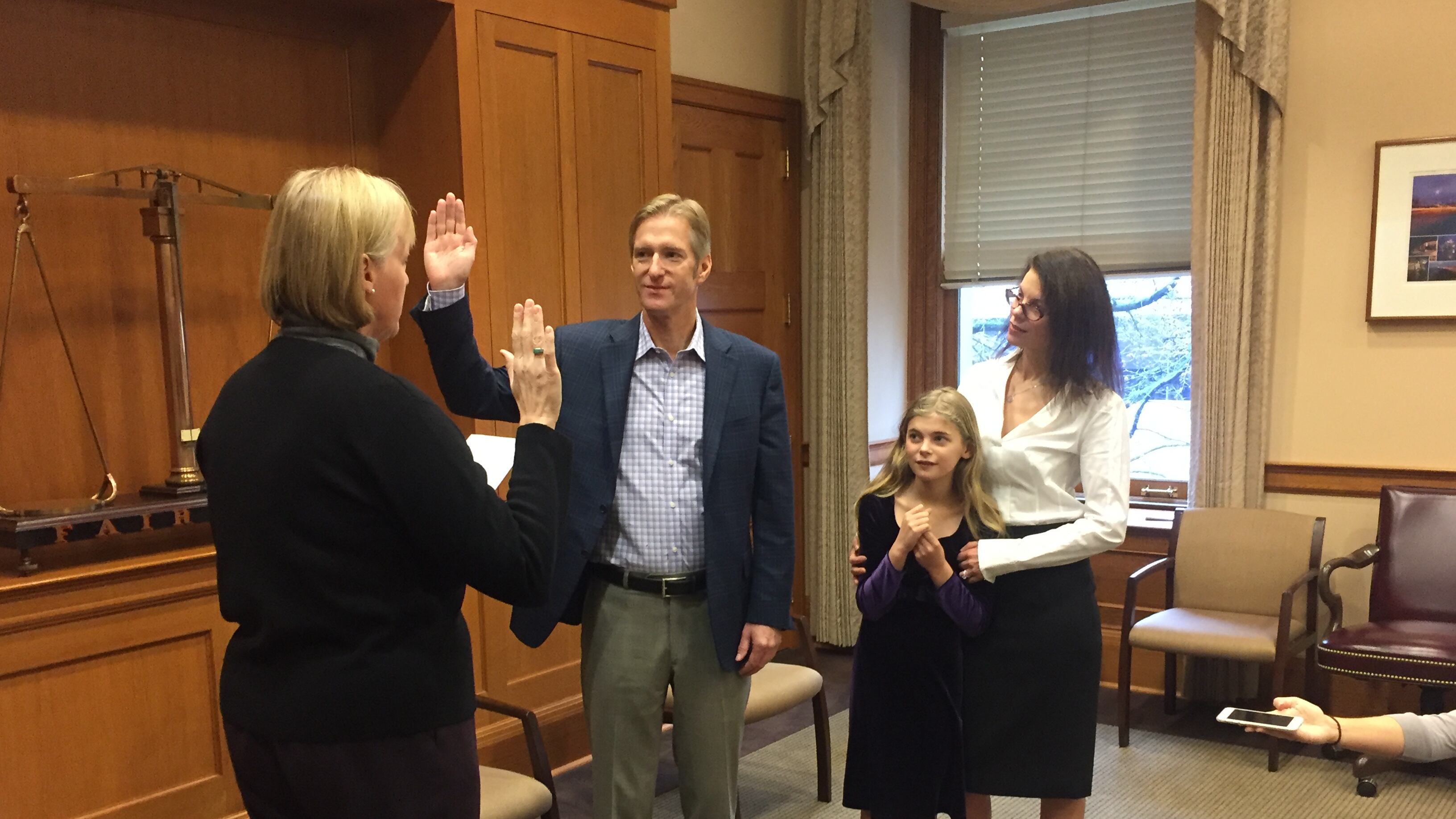As Portland Mayor Ted Wheeler continues his victory lap around City Hall this week—he seems to like doing things in threes, with a private swearing-in last Friday, a public swearing-in Wednesday, and an inaugural press conference this Friday—the inevitable questions nag at the nattering nabobs of negativism among us: What will Wheeler's biggest stumbling block be? And will he be able to overcome it to secure a second term?
If you've read any amount of news coverage of Wheeler's nascent administration, you might be under the impression that Portland's unique form of government, which gives almost as much power to its four elected commissioner as it does its mayor, is the most likely source of Wheeler's potential undoing.
Former mayors Charlie Hales, Sam Adams and Tom Potter all struggled in the weak-mayor system, finding themselves isolated at times when they couldn't rally colleagues to their causes. It's a valid point, and one this newspaper has made, too.
At its heart, though, that's a sexist revision of Portland's recent history—one that completely erases the tenure of former Mayor Vera Katz, who led Portland for three terms, not just two, from 1993 to 2005. As mayor, Katz corralled the same commission form of government that so bedeviled her male successors. (She nonetheless supported changes to the system, which voters in 2002 rejected —the eighth time they did that since embracing the weak-mayor style of government in 1913.)
When Wheeler sat down for an interview with WW two weeks ago, he said the best piece of advice he'd received after winning office was to "approach the job with humility."
He went on: "I have no monopoly on the truth."
Moments later in the interview, however, WW asked Wheeler for evidence of this humility by asking him to acknowledge fairly widespread criticism of his leadership style, as Multnomah County chairman and Oregon treasurer, that he often fails to bring others along with him.
That's something Portlanders heard about on the campaign trail: a variation on the smartest-guy-in-the-room syndrome, wherein Wheeler stumbles when he needs to act on others' advice or input.
As he did during the campaign, Wheeler resisted.
"I've certainly heard loudly and clearly from some in the Legislature that I did not listen," he responded after additional prodding. "Let's take the one example from the Legislature that people point out as being just a colossal failure—a failure to build a coalition. Three times I brought forward the Investment Modernization Act, and three times it got stuffed right back in my face. People say, 'Well, here's an example of how Ted Wheeler doesn't know how to build a coalition or listen or learn from his mistakes.'"
Wheeler then went on a three-minute, multi-pronged defense of his actions, captured in the video below. Asked again whether he could show any sense of humility about his failure three times (there's that number again) to reform the treasury, Wheeler again demurred.
"I can't," he said. "I know people don't universally love me. This isn't a popularity contest. It's not about being loved. It's about getting things done."
True enough, and let's not forget that Wheeler has pointedly avoided saying whether he wants to stay at City Hall for more than four years.
Except, funny thing about governing and elections. They kinda are popularity contests.

